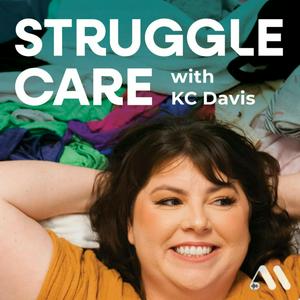Today’s topic is exciting: toxic masculinity, which might be better termed “functional masculinity.” I’m joined by Alex Frankel, who grew up in San Francisco clearly understanding that the definition of hotness was dictated by beautiful people in popular magazines. During his entire childhood, he felt trapped in his fat body and hated how he looked. He finally realized that being hot was more than perfect abs and bulging biceps but more of an attitude. Alex is now a successful plus-size model, and he’s a body-acceptance advocate and role model for fat guys all around the world. He created the Hot Fat Guy Club to dispel the myths around diet, culture, fatphobia, and other fat people stereotypes. His goal was to create a welcoming community where people are celebrated and not shamed for their body types. Why do I love this topic? It’s because men are not often talked about in the body positivity movement. Join us for a new perspective from a Hot Fat Guy!
Show Highlights:
● An overview of Dr. Ronald Levant’s Seven Tenets of Traditional Masculine Ideology
● Where the problem of masculinity originates because of deeply entrenched patriarchy, traditional masculine values, programming, and gender policing
● Fascinating trends in how young boys and girls segregate themselves until puberty hits
● Why Alex believes a lack of empathy and respect for other human beings are core issues with today’s masculinity
● How we are taught the power differential by society around relationships and rejection
● How programmed traditional masculinity can be dormant until it flares up later in life
● The link between church and religious propaganda and traditional masculinity
● Why men have been programmed by traditional masculinity around vulnerability and feeling shame in showing emotions
● Three things to note around weaponized vulnerability, emotional safety, and caring feelings
● An example about the inability to express or understand emotions
Resources and Links:
Connect with Alex Frankel and the Hot Fat Guy Club: TikTok and Instagram
Mentioned in this episode: Therapy Chat podcast and The Tough Standard: The Hard Truths About Masculinity and Violence by Ronald F. Levant and Shana Pryor
Connect with KC: Website, TikTok, Instagram, and Facebook
Get KC’s book, How to Keep House While Drowning
We love the sponsors that make this show possible! You can always find all the special deals and codes for all our current sponsors on our website: www.strugglecare.com/promo-codes.
Learn more about your ad choices. Visit podcastchoices.com/adchoices


